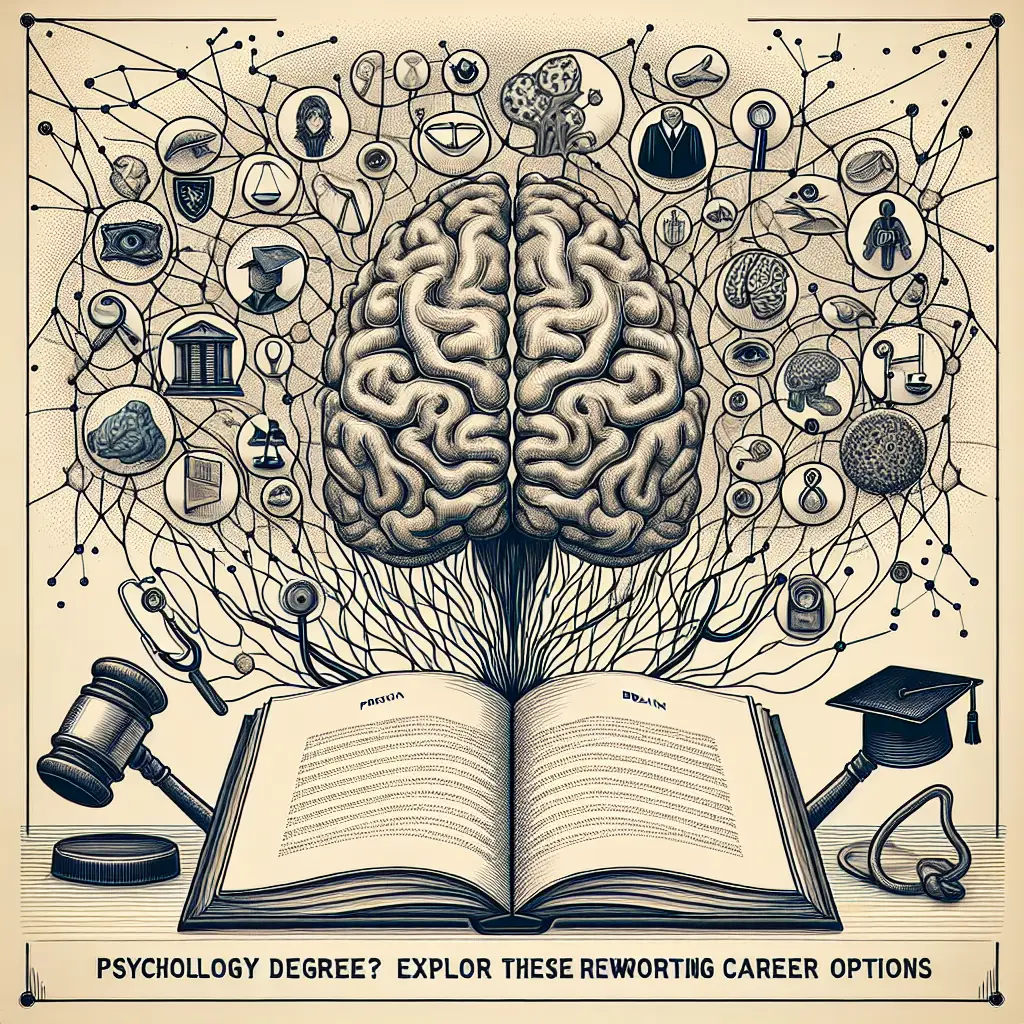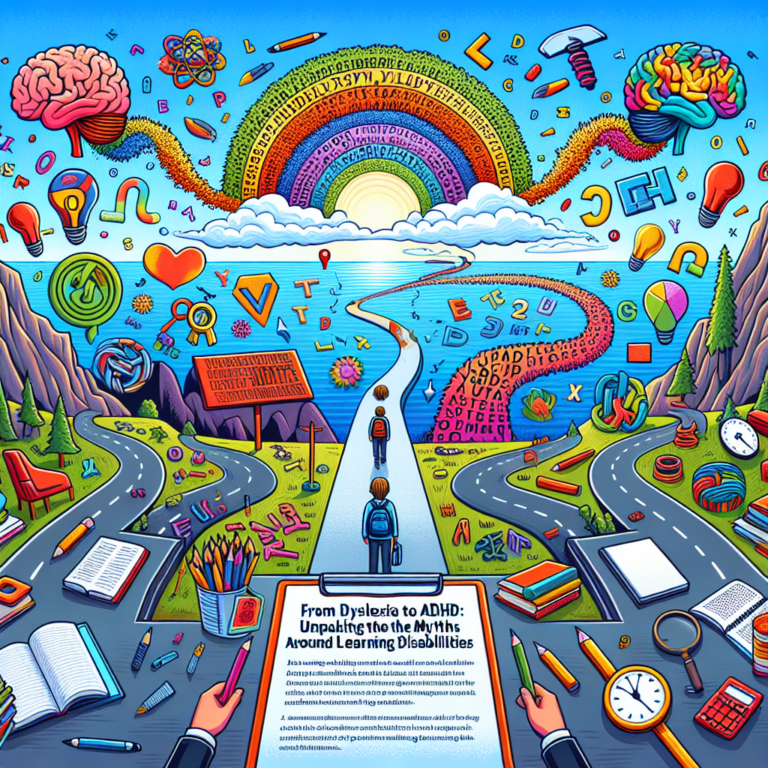
Unlocking Your Future: Psychology Degree? Explore These Rewarding Career Options
Introduction
In today’s fast-paced society, understanding human behavior and mental processes has never been more crucial. If you’re contemplating a Psychology Degree, you’re stepping into a field with vast opportunities that resonate on both personal and professional levels. The importance of psychology in sectors such as healthcare, education, business, and beyond cannot be overstated. Not only does a psychology degree provide you with fascinating insights into human behavior, but it also equips you with invaluable skills that are highly sought after in numerous career paths.
Curious about what lies ahead? Join us as we delve into this transformative journey and explore these rewarding career options stemming from a Psychology Degree.
Why Pursue a Psychology Degree?
Before we jump into the potential career paths, let’s first discuss why many individuals choose to pursue a Psychology Degree.
Expansive Knowledge of Human Nature
A Psychology Degree offers a deep dive into various aspects of human thoughts, feelings, and behaviors. Through subjects like cognitive, developmental, and social psychology, students learn to analyze what drives behavior, providing them with unique perspectives necessary for a wide array of careers.
Diverse Career Options
From clinical psychology to organizational roles, the versatility of a Psychology Degree allows for career opportunities across numerous sectors. Whether you wish to work directly with individuals, engage in research, or even consult within a business environment, the options are plentiful.
Growing Demand
According to the U.S. Bureau of Labor Statistics, the demand for professionals in psychology and related fields is projected to grow significantly. This inclination toward psychological services reflects society’s increasing recognition of mental health and well-being.
Career Pathways: Explore These Rewarding Options
1. Clinical Psychologist
About the Role
Clinical psychologists diagnose and treat mental health disorders. They work in various settings, including hospitals, private practices, and community agencies.
Case Study
Consider the story of Dr. Jane Smith, who, after earning her psychology degree, pursued a Ph.D. in clinical psychology. Dr. Smith established her practice specializing in cognitive-behavioral therapy (CBT) for adolescents. Through her work, she changes lives, helping young people navigate their mental health struggles, accompanied by the skills gained during her education.
Relevance
This illustrates the direct impact a psychology degree can have, emphasizing a career dedicated to healing and support.
2. School Psychologist
About the Role
School psychologists play a pivotal role in education, assessing student learning and emotional needs. They collaborate with teachers and parents to promote a positive learning environment.
Case Study
Take the example of Tom, a school psychologist who utilized his psychology degree to implement programs targeting bullying in his school and providing counseling for students facing emotional challenges. His initiatives led to a marked improvement in student well-being and academic performance.
Relevance
Tom’s story exemplifies how psychology graduates can positively influence their communities and youths’ lives.
3. Industrial-Organizational Psychologist
About the Role
Industrial-organizational psychology focuses on workplace behavior. Professionals assess and improve employee performance, enhance organizational structure, and foster workplace harmony.
Case Study
Dr. Emily Johnson, after receiving her psychology degree, became an I/O psychologist. She conducted a study in a tech firm assessing employee satisfaction. Her findings helped the company revamp their retention strategies, leading to a 25% reduction in turnover.
Relevance
This case illustrates how psychology graduates can make significant contributions to corporate environments.
4. Forensic Psychologist
About the Role
Forensic psychologists apply psychological expertise to legal issues. They work with law enforcement, conduct assessments, and may even testify in court.
Case Study
Consider the case of Dr. Mark Rivera, whose psychology degree equipped him to work with criminal justice systems. His assessment of offenders provides crucial insights that influence sentencing and rehabilitation, showcasing the blend of psychology and law.
Relevance
Dr. Rivera symbolizes the unique intersection of two diverse fields where psychology graduates can excel.
5. Human Resources Specialist
About the Role
HR specialists leverage psychological principles to manage employee relations, recruitment, and organizational culture.
Case Study
Maria, an HR specialist with a psychology degree, utilized her understanding of group dynamics to improve team collaboration within her organization. Her initiatives reduced conflict resolution times by 30%, demonstrating the practical application of psychological principles.
Relevance
Maria’s example illustrates that a psychology degree isn’t limited to clinical roles; it’s equally impactful in business.
6. Researcher or Academic
About the Role
Many psychology graduates find fulfillment in academia or research. They explore various facets of human behavior while educating the next generation.
Case Study
Dr. Alex Chen, who pursued a career in academia after completing his psychology degree, leads groundbreaking research on psychological resilience in students facing socio-economic challenges. His findings have implications for educational practices nationwide.
Relevance
Dr. Chen’s journey emphasizes the importance of ongoing research and education within the field of psychology.
Skills Acquired Through a Psychology Degree
Whether you aim to be a clinical psychologist, school counselor, or any other role, there are essential skills you’ll acquire through your psychology studies:
| Skill | Description |
|---|---|
| Critical Thinking | Evaluating information and making informed decisions. |
| Communication | Effectively conveying ideas and empathizing with others. |
| Research Skills | Conducting experiments and analyzing data. |
| Ethics | Understanding and implementing ethical guidelines. |
| Analytical Skills | Breaking down complex issues and synthesizing information. |
These skills are applicable across various fields and pivotal for career success.
Conclusion
A Psychology Degree is more than just a path for understanding human minds; it’s a gateway to numerous fulfilling career options. Whether you dream of becoming a clinical psychologist, working in HR, or conducting impactful research, there’s no shortage of opportunities available to you. The field is ever-evolving, and your role may significantly influence the lives of individuals as well as communities.
Ultimately, the question, "Psychology Degree? Explore These Rewarding Career Options" unveils the myriad paths that lie ahead. Each option leads to a chance to make a difference, showcasing the true power of a psychology education. So take the leap, and unlock your potential today!
FAQs
1. What can I do with a bachelor’s degree in psychology?
With a bachelor’s in psychology, you can pursue entry-level positions in social services, human resources, or marketing. You could also consider further studies to specialize in a particular area of interest.
2. How long does it take to become a psychologist?
To become a licensed psychologist, you’ll typically need a doctorate, which can take 5-7 years of grad school after your bachelor’s degree. It also requires completing an internship and passing an examination.
3. Is a psychology degree worth it?
Absolutely! A psychology degree offers valuable skills and knowledge applicable across various industries, and there is a growing demand for trained psychology professionals.
4. What certifications can I pursue after a psychology degree?
Consider certifications like becoming a Licensed Professional Counselor (LPC) or getting specialized training in areas such as substance abuse or marriage and family therapy.
5. Can I work in business with a psychology degree?
Yes! Fields like market research, consulting, and human resources value a background in psychology, as it helps understand consumer behavior and improve organizational culture.
By pursuing a Psychology Degree, the potential to explore multiple rewarding career options is limitless. Embrace the journey ahead and shape the future you desire!















